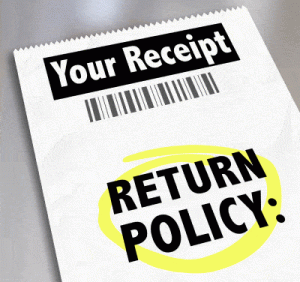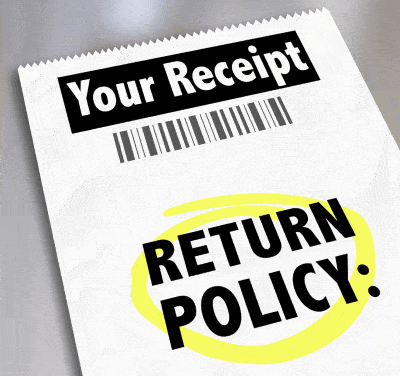 There’s a lot of confusion on what type of refund policy, if any, business owners should have. And there’s no single one-size-fits-all answer to that question either.
There’s a lot of confusion on what type of refund policy, if any, business owners should have. And there’s no single one-size-fits-all answer to that question either.
Business-To-Business (B2B)
As a practical matter, a “no refunds” policy is typically okay from a legal standpoint if it is a B2B transaction. Of course, you’d want to make it clear to the business customer prior to purchase that all sales are final and there are no refunds.
However, if that’s not the norm in your industry, you may be at a competitive disadvantage by having a no-refunds policy. It’s more a question of testing the market than a legal one in the B2B arena.
Business-To-Consumer (B2C) Refund Policy
It gets a lot more complicated if it’s a consumer purchasing your products or services.
Retail Shops
If you’ve got a brick-and-mortar retail store, the first thing you’ll want to do is see if your state has a specific law covering refunds and product returns. Some states not only have specific refund and returns policies protecting consumers but they also require you to post that policy by the cash register and/or put the policy on the customer’s receipt.
For certain large purchases (e.g. car purchases, gym memberships, etc.), there’s a federal “cooling off” rule and some states have similar laws. The most popular version of this is a 3-day cooling off period where the consumer has a right to cancel the purchase within 3 business days of signing the contract.
Online B2C Businesses
If you’re selling products or services online to consumers, there’s a risk that a government agency in another state will attempt to apply its laws to the purchase to protect consumers who bought from you in that state. And with 50 states in the U.S. alone (plus Washington, D.C.), that’s a lot of laws, rules, and regulations to figure out.
As a general rule of thumb, however, you can reduce your legal risks online by making it clear that the laws of your state apply to the transaction (including dispute resolution) and U.S. federal law too. Then have a website refund and returns policy that reflects federal and your state’s laws for returns and refunds, including any cooling off period right to cancel.
Marketing Reasons For A Generous Refund Policy
Note that this discussion of refund and returns policies focuses on the legal requirements for B2B and B2C transactions.
Yet there may be marketing reasons why it makes sense to offer a generous refund and returns policy even if not legally required to do so.
For example, you may have higher sales conversions without increased demands for a refund if there’s a 30, 60, 90+ day refund policy that partially reverses risk. And, of course, the person who promptly receives a refund is less likely to smear your business online by posting negative reviews that are nearly impossible to get taken down.
An experienced business lawyer can draft a refund and returns policy that’s right for your business while taking into account your marketing and online reputation concerns.

